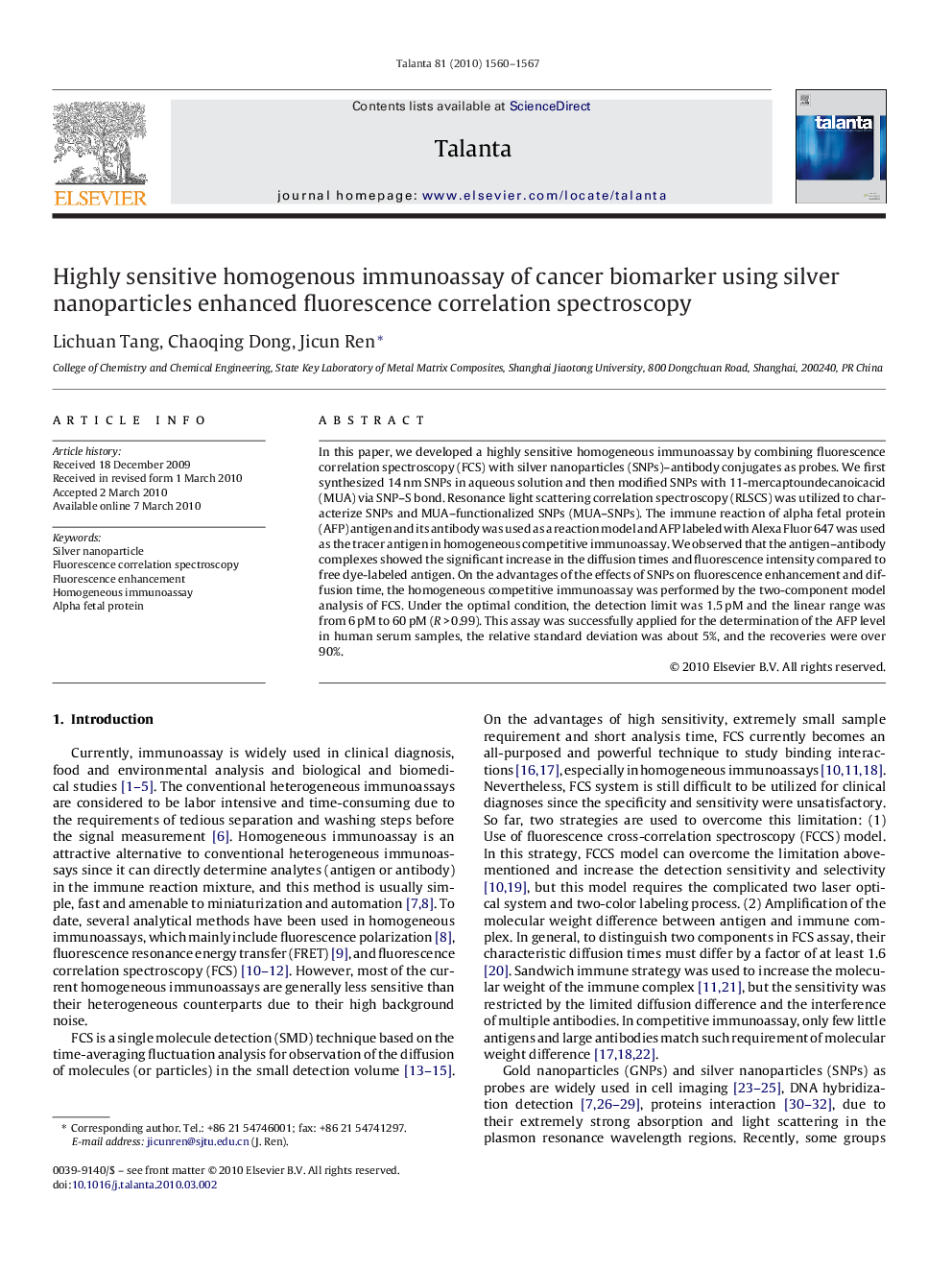| Article ID | Journal | Published Year | Pages | File Type |
|---|---|---|---|---|
| 1242670 | Talanta | 2010 | 8 Pages |
In this paper, we developed a highly sensitive homogeneous immunoassay by combining fluorescence correlation spectroscopy (FCS) with silver nanoparticles (SNPs)–antibody conjugates as probes. We first synthesized 14 nm SNPs in aqueous solution and then modified SNPs with 11-mercaptoundecanoicacid (MUA) via SNP–S bond. Resonance light scattering correlation spectroscopy (RLSCS) was utilized to characterize SNPs and MUA–functionalized SNPs (MUA–SNPs). The immune reaction of alpha fetal protein (AFP) antigen and its antibody was used as a reaction model and AFP labeled with Alexa Fluor 647 was used as the tracer antigen in homogeneous competitive immunoassay. We observed that the antigen–antibody complexes showed the significant increase in the diffusion times and fluorescence intensity compared to free dye-labeled antigen. On the advantages of the effects of SNPs on fluorescence enhancement and diffusion time, the homogeneous competitive immunoassay was performed by the two-component model analysis of FCS. Under the optimal condition, the detection limit was 1.5 pM and the linear range was from 6 pM to 60 pM (R > 0.99). This assay was successfully applied for the determination of the AFP level in human serum samples, the relative standard deviation was about 5%, and the recoveries were over 90%.
